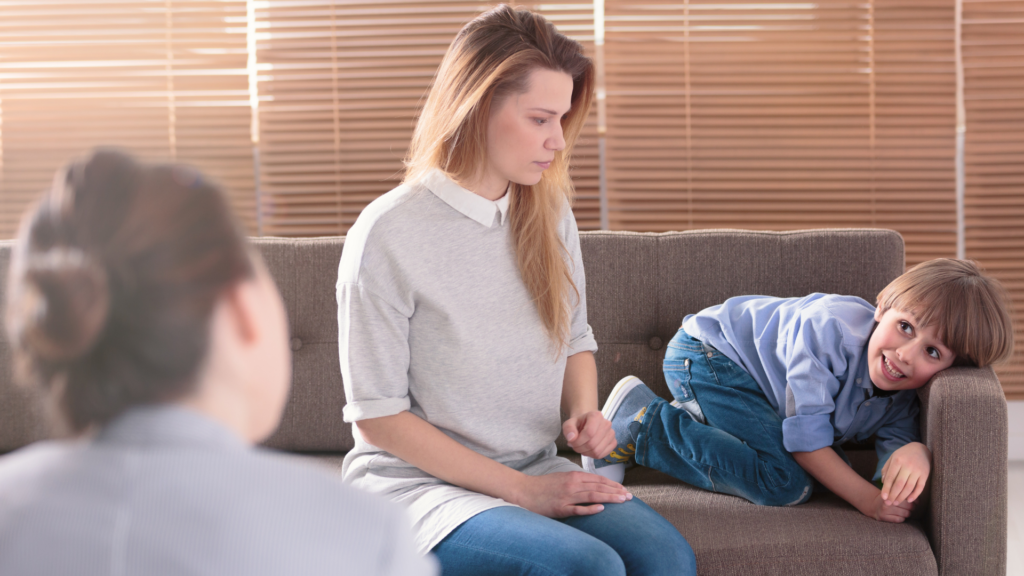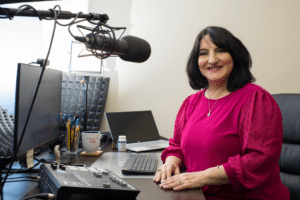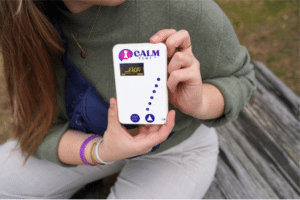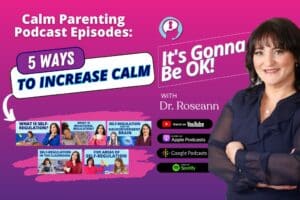Most parents know that Attention Deficit Hyperactivity Disorder (ADHD) is a neurodevelopmental condition that affects individuals across various age groups. It is characterized by symptoms related to inattention, hyperactivity, and impulsivity. Children with ADHD often face difficulties in maintaining focus, following instructions, and managing their impulses.
ADHD symptoms may manifest differently in individuals. Some may exhibit predominantly inattentive behaviors, while others may display more hyperactive and impulsive tendencies. The condition can impact various aspects of life, including academic performance, social interactions, and daily routines.
The exact cause of ADHD is still under study, but it is believed to be a combination of genetic, environmental, and neurological factors. Diagnosis typically occurs in childhood, but it can persist into adolescence and adulthood. It's essential to recognize that ADHD is not solely a childhood condition as many adults continue to grapple with its challenges.
Exposing the ADHD Medication Mayhem
Parents are often desperate for ADHD solutions and they turn to their pediatrician for guidance. And some doctors recommend ADHD medications to manage ADHD because that is the only treatment option they are familiar with. These drugs are often categorized into two primary classes: stimulant and non-stimulant medications. Stimulant medicines, such as methylphenidate and amphetamine-based drugs, are the most commonly prescribed.
Stimulant medications work by altering the activity of certain neurotransmitters in the brain, including dopamine and norepinephrine. This adjustment can enhance focus, attention, and impulse control in individuals with ADHD. Non-stimulant medications, like atomoxetine, guanfacine, and clonidine, provide an alternative for those who don't respond well to stimulants or experience adverse side effects.
It's crucial to understand that while ADHD medications are approved for the treatment of ADHD, they are not without alarming concerns. All possible side effects, whether common or rare, must be carefully considered.
The use of prescription medications is a delicate balancing act, where the necessity of treatment and its potential effects over time must be weighed carefully. Parents who opt for ADHD medications may experience daily challenges in managing these side effects.
Furthermore, each child's response to medication can differ. Customization and flexibility in treatment are paramount. You must ensure that your child receives the right dosage and adheres to the prescribed schedule to put its potential side effects in check.
Side Effects of ADHD Medication for Kids
When it comes to ADHD medication for kids, understanding the common side effects is crucial as they can impact a child's daily life. As a parent, you need to be well-informed about them. Such side effects include:
1. Decreased Appetite
Many children experience reduced hunger while taking ADHD medication. This can be concerning, as proper nutrition is essential for growth and development. Parents often find themselves struggling with mealtimes and trying to encourage their children to eat even when they don't feel like it.
2. Sleep Disturbances
ADHD medication can disrupt a child's sleep patterns. This often leads to difficulty falling asleep or staying asleep throughout the night. Sleep problems can further exacerbate the symptoms of ADHD and affect a child's overall well-being.
3. Weight Loss
As a direct result of appetite suppression, some children may lose weight while on ADHD medications. Parents might need to monitor their child's weight to ensure it remains within a healthy range.
4. Stomach Upset
Gastrointestinal issues, such as stomachaches or nausea, can occur. This can be uncomfortable and might even disrupt a child's daily routine. Studies have found a strong, two-way relationship between the community of microorganisms living in our gut, known as the gut microbiome, and our central nervous system, or the brain.
Such connection, often referred to as the microbiome-gut-brain axis, plays a significant role in various neuropsychiatric disorders affecting both children and adults, particularly ADHD and autism (Checa-Ros et al., 2021).
5. Mood Swings
Some children may experience mood swings or emotional changes while on ADHD medication. This can manifest as irritability, sadness, or even as an anxiety disorder. Researchers are continuously studying the ability of certain stimulant drugs to manipulate the mind (Grahame-Smith, 1975).
6. Tics
In some cases, ADHD medication can exacerbate or even trigger tics. Tics are sudden, repetitive, and involuntary movements or vocalizations. Studies also show that ADHD and tics as comorbid conditions (Gadow et al., 2002).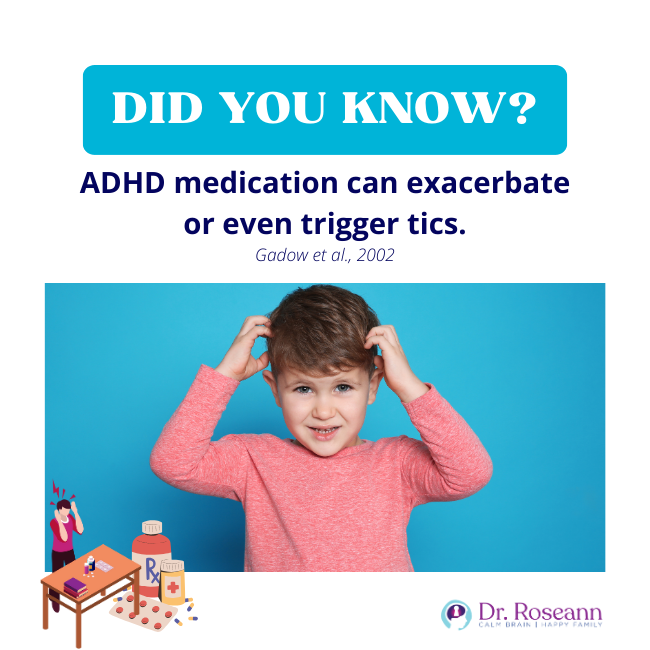
7. Heart Problems
In rare instances, some children may experience heart problems while on ADHD medication. This can manifest as an irregular heart rate, chest pain, heart attack, or other cardiac issues. Monitoring your child's heart health is essential, particularly if there's a family history of heart disease.
8. High Blood Pressure
Blood pressure and heart rate concerns can be a consequence of ADHD medication. This is one of the more serious side effects of ADHD medicines because hypertension can lead to various health complications if left unaddressed. Regular blood pressure checks are recommended.
9. Sudden Death
Although exceedingly rare, there have been reported cases of sudden death associated with ADHD medication. This alarming possibility underscores the need for careful monitoring and open communication with your healthcare provider.
10. Personality Changes
Some children may exhibit unusual personality changes while on ADHD medication. These changes might include increased anxiety, aggression, or even the emergence of suicidal thoughts. Such shifts in behavior should be treated with immediate concern and addressed with a healthcare professional.
11. Liver Damage
A more infrequent yet significant concern is the potential for liver damage with ADHD medications (Vanga, et. al, 2013). Regular liver function tests may be necessary during the treatment of ADHD using different medicines to ensure early detection of any issues.
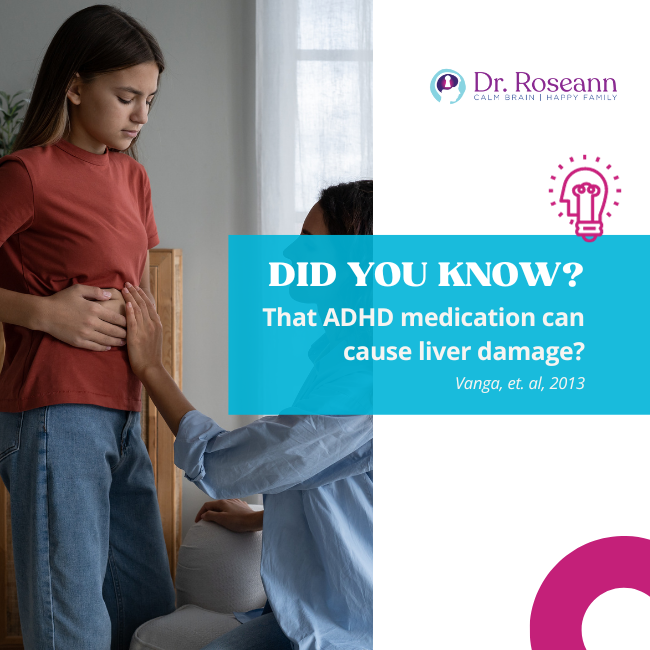
12. Growth Retardation
The common side effect of weight loss can, in some cases, become a serious concern, potentially leading to growth retardation in children. Monitoring both weight and growth progress is vital to assess whether the benefits of treating ADHD with medications outweigh the potential risks.
Long-Term Effects of ADHD Medication
There are some concerns about the long-term use of ADHD medication. These include the possibility of developing tolerance to medication and facing stigma or labeling, on top of the side effects listed above. Dependency and withdrawal issues may also arise if medication is used in a lower or higher dose, especially with stimulants.
Ultimately, the decision to pursue long-term ADHD medication should be made with the guidance of healthcare professionals, taking into account an individual's unique responses and circumstances. Regular monitoring and open communication with a healthcare provider are essential to address any potential negative effects.
Managing Side Effects of ADHD Medication
Monitoring your child is an essential component of managing the side effects of these short-acting or long-acting medications. Keep a close eye on your child's response to medication. Pay attention to any shifts in behavior, mood, or physical well-being. This vigilant approach allows you to catch and address potential issues early.
As a parent, you play a crucial role in establishing routines and support structures that can alleviate some of the side effects. For example, if your child experiences appetite loss, consider scheduling regular mealtimes to encourage eating. Implementing a consistent sleep routine can help mitigate sleep disturbances.
Lifestyle adjustments can also be invaluable. Ensuring your child remains well-hydrated and physically active can promote overall health and potentially reduce side effects. Engaging in regular exercise can be particularly effective in countering some of the effects of ADHD medication.
Don't hesitate to seek guidance, school accommodations, and support from your child's teachers. A collaborative effort that includes educators can provide valuable insights and resources to manage side effects in an academic setting. Creating a supportive environment at school is an integral part of the puzzle.
Alternative Treatments for ADHD
There are science-backed, natural treatment options that offer a landscape of possibilities beyond drug administration. These approaches provide a different avenue for parents and children to explore, aiming to address the challenges of ADHD through non-pharmacological means.
Behavior therapy is a cornerstone of alternative treatment for ADHD. This approach focuses on teaching children strategies for managing their behavior and improving self-control. Integrating a behavioral treatment plan provides your kids with a toolbox of techniques to address the core symptoms of ADHD, such as impulsivity and inattention.
Family therapy is another valuable component of alternative treatment. It recognizes that ADHD doesn't just affect the individual child but all other family members. Family therapy helps parents and siblings understand the condition better, fostering an environment of support and cooperation.
Social skills training is a vital aspect of alternative treatment, particularly for a child with ADHD who may struggle with interpersonal relationships. These programs provide a structured setting for children to develop social skills, enhancing their ability to form and maintain healthy relationships.
Parent training programs can be immensely beneficial, equipping parents with the tools to manage their child's ADHD effectively. They focus on positive reinforcement, structure, and consistent discipline to create a supportive home environment.
Educational support is crucial for children with ADHD. Individualized education plans (IEPs) and accommodations at school, such as extended time on tests or preferential seating, can create an environment where children can thrive academically despite the challenges of ADHD.
Lifestyle changes also play a pivotal role in alternative treatment. Ensuring a well-balanced diet, regular exercise, and adequate sleep can positively impact a child's overall well-being and help alleviate some of the symptoms of ADHD.
Science-backed therapies like neurofeedback and PEMF have gained recognition in the realm of ADHD treatment. These approaches focus on training the brain to enhance self-regulation and attention.
Best ADHD Medication For Kids
Now you better understand that the best ADHD medication for kids is nutrition, brain supplements, and natural therapies. The developing brain is highly susceptible to its environment and that is why we should only use medication as the last option, not the first.
Risk vs Benefits of ADHD Medication for Kids
When considering ADHD medication for children, it's essential to weigh the potential risks against the perceived benefits. While medication can be used to manage the symptoms of ADHD, it's not without its downsides. Exploring alternative treatments is a valid and valuable option.
For some children, the higher risk of substance abuse is an important factor. While there's evidence that suggests ADHD medication can reduce the risk of substance abuse in the long term, it's not a guarantee. Concerns about the potential misuse or dependency on these medications may lead parents to seek alternative treatments.
In light of these risks, alternative treatments offer a compelling alternative, such as the BrainBehaviorResetTM Program. The program incorporates neurofeedback, PEMF, magnesium supplements, and behavioral therapy to effectively address the core symptoms of ADHD without the risks associated with medication. It also equips children with essential skills to manage their behavior and improve self-control.
The decision to pursue alternative treatments over medication is a personal one, often based on the individual child's needs and circumstances. However, as per the American Academy of Pediatrics, medications should never be the first line of treatment for young children (CDC, 2022).
It may be better to explore natural alternatives to treat ADHD in children so you can mitigate some of the risks associated with ADHD medication while still providing valuable support to your child's well-being.
Parent Action Steps
☐ Consult with your child's doctor for medical advice and personalized guidance.
☐ Educate yourself about ADHD and your child's symptoms.
☐ Address potential side effects and risks of different medications used for ADHD.
☐ Explore non-pharmacological interventions as an alternative to medication.
☐ Regularly monitor your child's progress on their treatment plan.
☐ Foster open communication with your child about their treatment experience.
☐ Combine alternative treatment with behavioral interventions or counseling.
☐ Connect with support groups for parents of children with ADHD.
☐ Encourage a healthy lifestyle to complement medication and manage symptoms.
☐ Take this ADHD Quiz to know if your child has ADHD or something else.
☐ Try our Solution Matcher to get personalized treatment for your child.
Citations
CDC. (2022, August 9). Treatment of ADHD. Centers for Disease Control and Prevention. https://www.cdc.gov/ncbddd/adhd/treatment.html
Checa-Ros, A., Jeréz-Calero, A., Molina-Carballo, A., Campoy, C., & Muñoz-Hoyos, A. (2021). Current Evidence on the Role of the Gut Microbiome in ADHD Pathophysiology and Therapeutic Implications. Nutrients, 13(1), 249. https://doi.org/10.3390/nu13010249
Gadow, K. D., Nolan, E. E., Sprafkin, J., & Schwartz, J. (2002). Tics and psychiatric comorbidity in children and adolescents. Developmental Medicine & Child Neurology, 44(05). https://doi.org/10.1017/s001216220100216x
Grahame-Smith, D. G. (1975). Self-medication with mood-changing drugs. Journal of Medical Ethics, 1(3), 132–137. https://doi.org/10.1136/jme.1.3.132
Vanga, R. R., Bal, B., & Olden, K. W. (2013). Adderall induced acute liver injury: a rare case and review of the literature. Case reports in gastrointestinal medicine, 2013, 902892. https://doi.org/10.1155/2013/902892
Are you looking for SOLUTIONS for your struggling child or teen?
Dr. Roseann and her team are all about science-backed solutions, so you are in the right place!
Grab your complimentary copy of
147 Therapist-Endorsed Self-Regulation Strategies for Children: A Practical Guide for Parents
You can get her books for parents and professionals, including: It’s Gonna Be OK™: Proven Ways to Improve Your Child’s Mental Health, Teletherapy Toolkit™ and Brain Under Attack: A Resource For Parents and Caregivers of Children With PANS, PANDAS, and Autoimmune Encephalopathy.
If you are a business or organization that needs proactive guidance to support employee mental health or an organization looking for a brand representative, check out Dr. Roseann’s professional speaking page to see how we can work together.
Dr. Roseann is a Children’s Mental Health Expert and Therapist who has been featured in/on hundreds of media outlets including, CBS, NBC, FOX News, PIX11 NYC, The New York Times, The Washington Post, Business Insider, USA Today, CNET, Marth Stewart, and PARENTS. FORBES called her, “A thought leader in children’s mental health.”

She is the founder and director of The Global Institute of Children’s Mental Health and Dr. Roseann Capanna-Hodge, LLC. Dr. Roseann is a Board Certified Neurofeedback (BCN) Practitioner, a Board Member of the Northeast Region Biofeedback Society (NRBS), Certified Integrative Mental Health Professional (CIMHP) and an Amen Clinic Certified Brain Health Coach. She is also a member of The International Lyme Disease and Associated Disease Society (ILADS), The American Psychological Association (APA), Anxiety and Depression Association of America (ADAA) National Association of School Psychologists (NASP), International OCD Foundation (IOCDF) International Society for Neurofeedback and Research (ISNR) and The Association of Applied Psychophysiology and Biofeedback (AAPB).
© Roseann-Capanna-Hodge, LLC 2023

